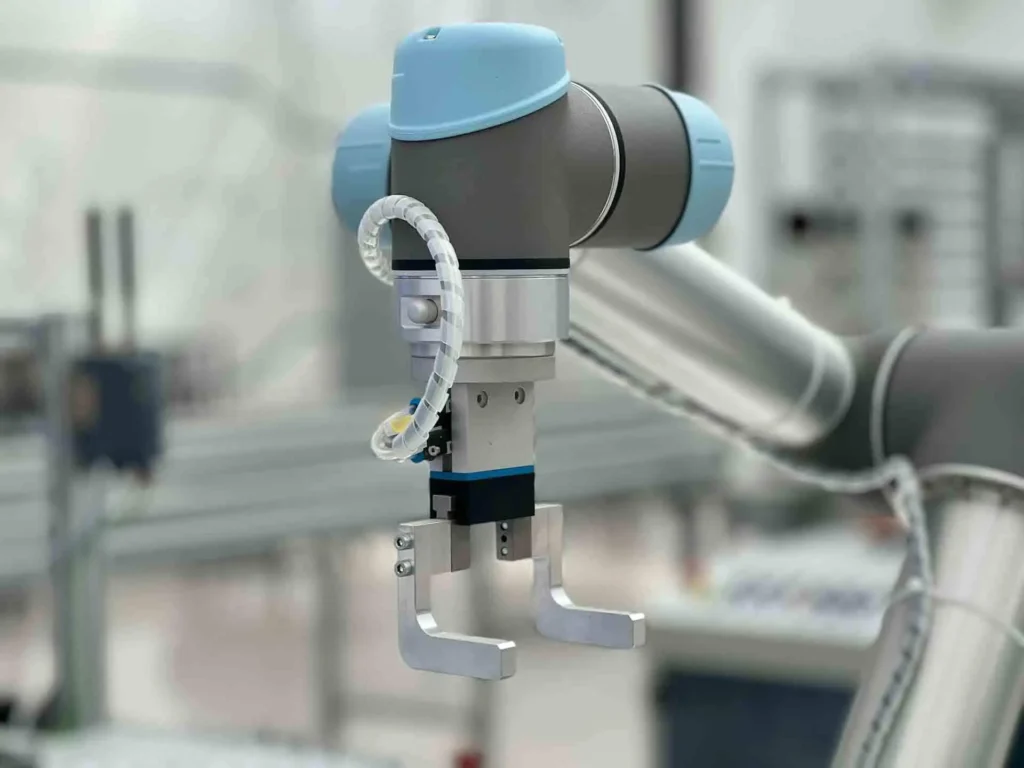For ages, the image of an accountant has been synonymous with towering ledgers and a calculator. While expertise and analytical thinking remain at the core of the profession, the tools available to accountants are changing. Artificial Intelligence is quickly becoming a practical tool for accountants to use to handle the most tedious parts of their job.
The benefits of AI in accounting include speeding up the work and greater accuracy. Let’s explore some examples of artificial intelligence in accounting, the problems it solves, and the benefits it brings to the table.
What Is Artificial Intelligence in Accounting?
Put simply, AI in accounting is about teaching machines to handle data-heavy processes and learn from patterns. This software can then make accurate predictions backed by the data.

AI in accounting combines several technologies that work together:
- Machine Learning (ML): This is a system’s ability to learn and improve from past experience without being explicitly programmed for every task. In accounting, ML algorithms can categorize expenses or identify unusual transactions.
- Natural Language Processing (NLP): This allows software to understand human language. NLP makes it possible to ask a system, “What were our top expenses last quarter?” in plain English and get an accurate answer.
- Robotic Process Automation (RPA): These “bots” can be programmed to perform rule-based tasks across different applications, such as entering data from invoices into an accounting system.
- Data Analytics: AI can process huge amounts of information quickly to identify trends and correlations. It provides insights from massive datasets that would be impossible to find manually.
Real Examples of Artificial Intelligence in Accounting
To understand AI’s impact, it helps to see it in action. Here are a few common applications already in use today.
Invoice and Billing Automation
Manually processing invoices is a time-consuming chore. AI-powered systems can automatically read incoming invoices, whether they are PDFs or scanned images, and extract key information like vendor details, amounts, and dates. They then enter this information directly into your accounting software with up to 98% precision. This eliminates the need for manual data entry and speeds up the entire accounts payable process. AI also learns from new invoice formats, continually improving accuracy and workflow efficiency.
Fraud Detection and Risk Management
AI systems are exceptionally good at establishing a “normal” pattern of financial behavior for a business. By continuously analyzing transactions, they can quickly flag activities that fall outside this pattern, such as unexpected large payments or duplicate invoices. This provides a proactive layer of security.
Predictive Analytics for Forecasting
AI processes historical financial data and external factors to generate accurate forecasts of cash flows and expenses. This dynamic forecasting supports smarter budgeting and financial planning for investments and growth.
AI Chatbots for Client Queries
Many accounting firms now use AI-powered chatbots on their websites. These virtual assistants can handle routine client questions 24/7, such as “What’s my account balance?” or “How do I upload my tax documents?” This frees up human staff to handle more complex consultations.
Automated Expense Management
AI tracks and categorizes expenses automatically by matching receipts to transactions and flagging discrepancies. This facilitates accurate report generation and cost control. Employees can simply take a picture of a receipt with their phone. The AI then reads the receipt, automatically categorizes the expense (for example, travel, meals, software), and pre-populates an expense report. This reduces errors and saves everyone a significant amount of time.
Key Benefits of AI in Accounting
These applications translate into direct advantages for businesses and accounting professionals.
Enhanced Accuracy and Fewer Errors
Humans are brilliant, but we’re prone to fatigue and simple mistakes, especially with repetitive data entry. A misplaced decimal point or transposed number can have serious consequences in accounting. AI systems process information with consistent accuracy, reducing errors and ensuring the integrity of your financial data.
Increased Time Efficiency
Time saving is one of the most immediate benefits. By automating routine tasks like data entry or invoice processing, AI gives accountants and business owners valuable time back. And this time can be redirected toward more impactful work, such as analyzing financial reports or helping management plan for long-term growth.
Smarter, Data-Driven Decision Making
With advanced analytics, AI can sift through huge datasets to provide insights. It can identify cost-saving opportunities and predict future cash flow challenges before they become a problem. This means leaders can make decisions based on solid evidence.
Reduced Operational Costs

While implementing AI tools requires an initial investment, the long-term return is a substantial reduction in operational costs. Automation reduces labor costs associated with manual tasks. Increased accuracy also means less money spent correcting mistakes, and improved efficiency means your team can handle a larger workload without expanding staff.
Looking to Streamline Your Accounting with AI? Contact Our Experts Today
Integrating these technologies might seem daunting, but you don’t have to navigate it alone. Our team of experts is here to help you identify the right AI solutions for your specific needs and implement them into your workflow.
Reach out to us for a consultation, and let’s discuss how you can harness the power of AI to drive your business forward.
In Summary
By automating mundane tasks and accessing previously inaccessible insights, the benefits of AI in accounting allow professionals to focus on providing counsel and offering real value to their organizations or clients.
FAQ
Will AI Replace Human Accountants?
No, the goal of AI is not to replace but to complement accountants. AI handles repetitive, data-heavy tasks, which frees up accountants to focus on higher-value work.
Is AI in Accounting Secure and Reliable?
Reputable AI accounting tools are built with strong security and compliance measures. They are highly reliable for the specific tasks they are designed for, such as data entry and pattern recognition.
How Expensive Is It to Implement AI in Accounting?
The cost varies widely depending on the solution. Many accounting software platforms (like QuickBooks Online or Xero) are already integrating AI features into their existing subscriptions. For more advanced, custom solutions, there is a higher initial investment, but it is typically offset by the long-term savings from increased efficiency and reduced errors.
What Kind of Tasks Can AI in Accounting Perform?
AI is great at automating routine tasks. Examples include processing invoices and receipts, categorizing expenses, performing bank reconciliations, flagging transactions for potential fraud, and generating basic financial reports.
Recent Posts
-
Published on: November 11, 2025
-
Published on: October 28, 2025
-
Published on: October 21, 2025





